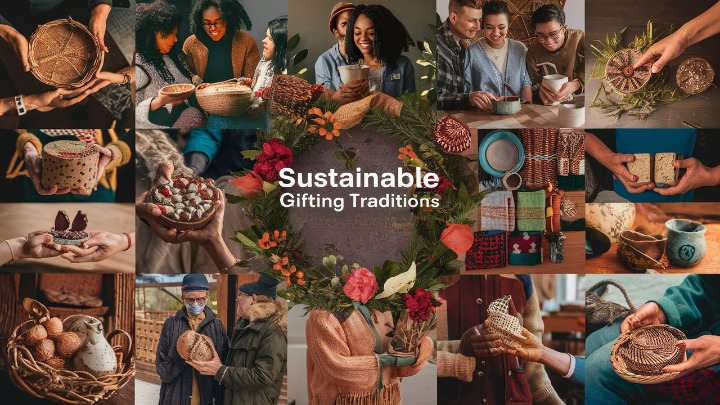Sustainable Gifting Traditions From Cultures Around the World
In today’s age of rampant consumerism and waste, the simple act of gift-giving has become heavily commercialized and detached from its original spirit of thoughtfulness. However, many cultures around the world have maintained beautiful gifting traditions rooted in sustainability, minimalism and honoring deeper human connections.
As we become increasingly conscious of our environmental impact, looking to these gifting practices from diverse global cultures can inspire more eco-friendly and intentional ways to celebrate special occasions. Here are some examples of sustainable gifting traditions that we could all learn from.
Japan: Furoshiki Cloth Wrapping
In Japanese culture, the fabric furoshiki has been used for centuries as an eco-friendly alternative to wrapping paper. These square cloths can be knotted and folded into elaborate coverings to transport items elegantly. Rather than disposable paper, the furoshiki is designed for reuse and even becomes part of the gift itself.
Today, furoshiki wrapping is seeing a revival as Japan leads the fight against plastic waste. The cloths come in beautiful patterns and can be incorporated into the gift eventually – used for things like carrying groceries, bundling clothing, even becoming a scarf. It’s a near zero-waste tradition that elevates presentation while avoiding disposable materials.

Indigenous Americas: Handmade Gifting
For many indigenous cultures across North and South America, meaningful gifts have long been handmade from natural materials found locally. Crafts like beadwork, basket weaving, pottery and wood carving held spiritual significance and demonstrated skill and intention versus mass manufacturing.
The Kwakwaka’wakw people of British Columbia, for instance, uphold a potlatch ceremony of giving away possessions and handicrafts as a source of wealth. The Navajo have long tradited hand-weaving intricate wool rugs and blankets to be cherished generationally. Handmade, ethically-sourced gifts ensure each item carries its own story.
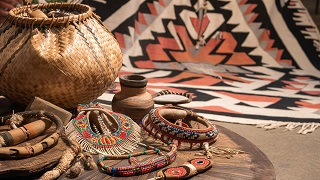
India: Plantable Seeds as Blessings
In the Hindu tradition, the act of gift-giving is seen as akin to honoring the devas (gods) and sowing blessings. One sustainable way this is done is the practice of gifting plantable seed products like raw rice, wheat or lentils decorated with messages, colors and sprinkled with the vibhutti sacred ash.
When these seed gifts eventually get planted and watered, they sprout into living offerings that provide nourishing food and symbolize abundance, growth and wishes for prosperity. It’s a beautiful zero-waste tradition that highlights our human reliance on agriculture and recognizes the regenerative cycle of nature.
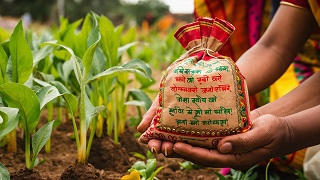
Morocco: Argan Harvesting
Within Berber Amazigh culture, the argan tree has been referred to as the “tree of life.” Its nutrient-dense argan oil has been praised for culinary, cosmetic and medicinal uses for centuries. Harvesting and extracting the oil in traditional ways provides income for many Moroccan cooperatives.
Rather than plastic-packaged products, one of the most meaningful gifts to give or receive in this tradition is pure, ethically-produced argan oil – cherished for its incredible versatility. Gifting argan celebrates sustainability, female entrepreneurship and honoring the bounties provided by respected indigenous trees.
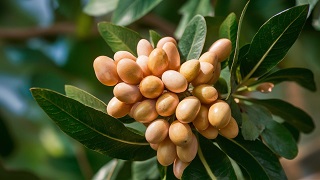
Kenya: Eco-Basket Weaving
In many parts of Sub-Saharan Africa, the art of basket weaving using natural materials like sisal, banana leaves and grasses has been honed over generations. These intricately-woven baskets, trays and containers are surprisingly durable while being totally biodegradable and renewable.
For the Luo people of Kenya, gifting these handwoven baskets has been a beloved tradition. But they also served practical purposes like carrying food from the farm or storing valuables. Repurposed and woven by hand, these gifts are essentially plastic-free containers. The baskets exemplify artistry passed down while treading lightly on the planet.
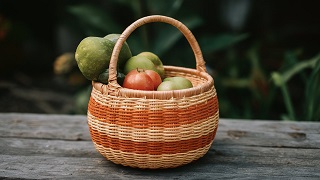
While all these examples span different parts of the globe, there is a commonality of showing respect for nature through sustainable materials, minimizing waste and prioritizing human labor and craftsmanship over mass manufacturing.
Other gift-giving traditions that reflect similar eco-friendly values:
- Hañiv Khavthan – Bountiful seed-keeping in Navajo culture
- Rakhi Bracelets – Handmade sacred threads tied in Hindu practice
- Matryoshka Dolls – Iconic painted wooden Russian nesting dolls
- Kitchen Gardens – Regionally grown food baskets in Italy
- Kente Cloth – Colorful handwoven fabric from Ghanaian artisans
- Foraging Baskets – Handwoven vessels for wild-harvested foods
All of these cultural traditions place emphasis on gifts that:
- Use natural, biodegradable materials
- Uphold artisanal skills and human labor
- Connect us back to the earth’s bounties
- Symbolize sacred relationships, gratitude and blessings
In the modern world’s shift toward sustainability and circularity, it feels somewhat poetic that many ancient gifting practices were eco-friendly by design. Not only do they inspire us to be more conscious consumers, but also to value quality craftsmanship over quantity.
So as you contemplate your next gift, perhaps look beyond the wasteful trappings of materialism. Instead, get inspired by these global cultural mores around giving in ways that tread lightly, spark human connection and pay respect to the cycles and resources of our planet.
After all, isn’t that truly the greatest gift we could hope to pass down?

